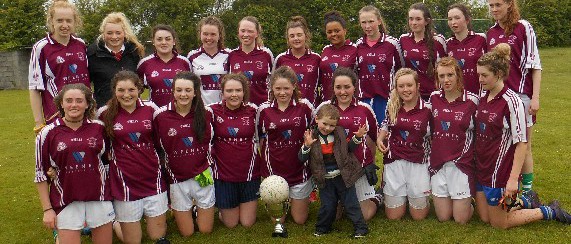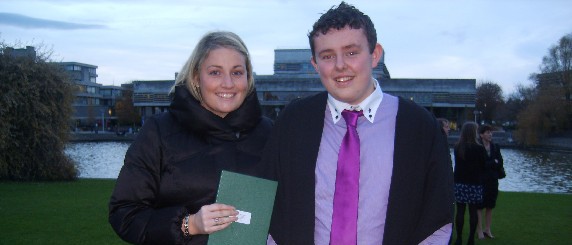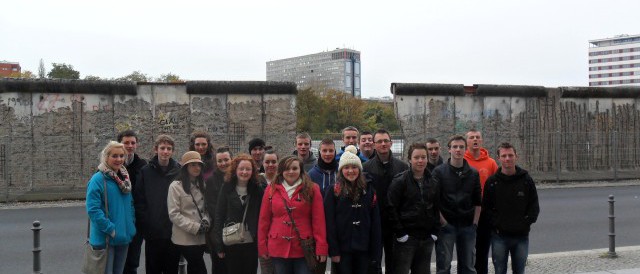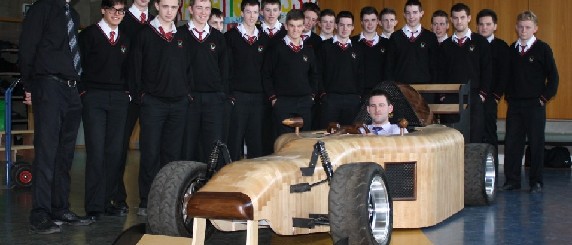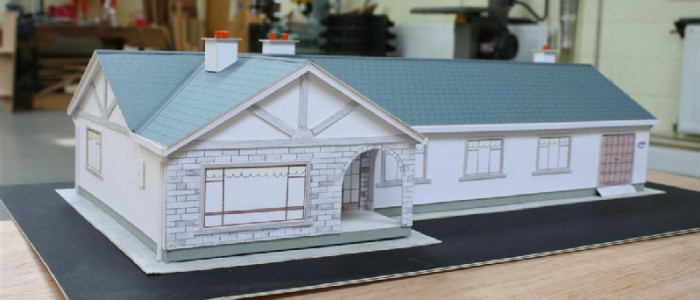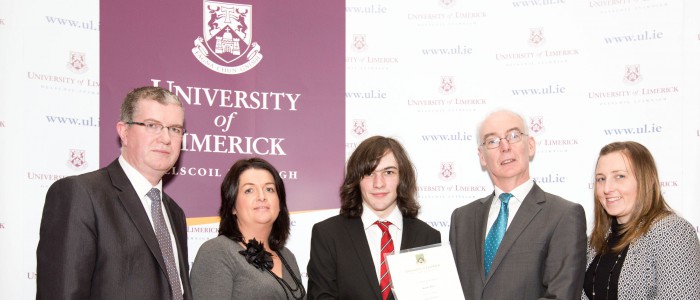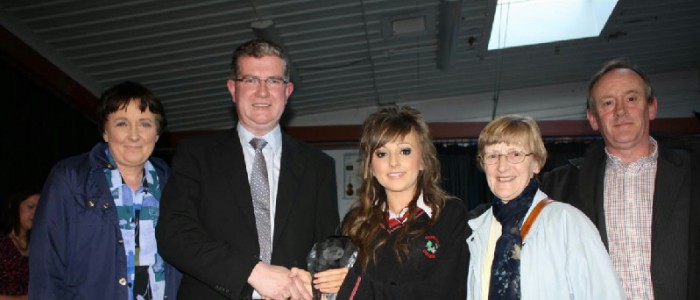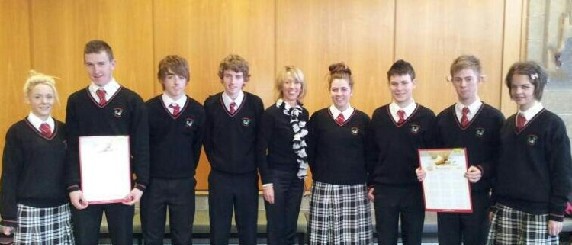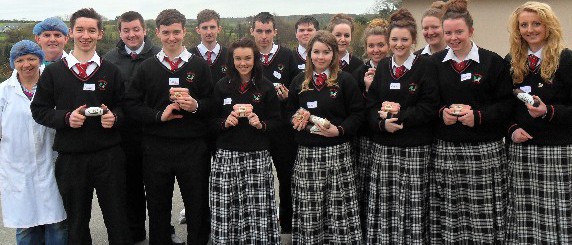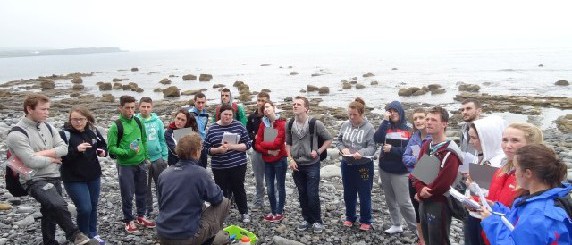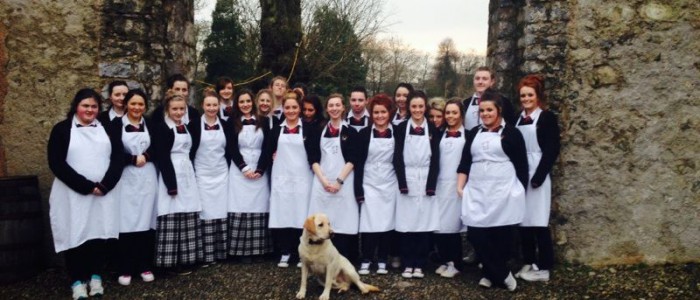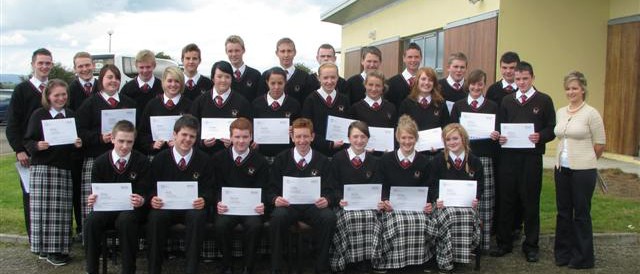Leaving Certificate Programme
All students study:
Irish, English, Project Maths, LCVP (subject to qualifying criteria), and French or German.
Students also study Career Guidance, Religion and Physical Education.
Senior Student also study 3 of the following subjects;
Accountancy, Art, Business, Biology, Chemistry, Construction Studies, Engineering Geography, History, Home Economics, Music, Physics, Technology. Agricultural Science, Politics and Society
Subject Descriptions
Accounting
Leaving Certificate accounting provides students with the knowledge, understanding and skills in accounting and financial management necessary for managing personal and basic company accounts. The learning experiences in accounting develop students’ organisational, logical thinking, planning and problem-solving skills for their future life, work and study. It also develops their numeracy skills within the context of business and enterprise. The syllabus is for students in the senior cycle of post-primary education and is assessed at Higher and Ordinary levels.
Agricultural Science
Leaving Certificate agricultural science involves the study of the science and technology underlying the principles and practices of agriculture. It aims to develop knowledge, skills and attitudes that promote the sustainability of agricultural resources, and places emphasis on the managed use of these resources. Plants and animal types associated with agriculture are studied, and investigations are undertaken into such aspects as soil, ecology, plant and animal physiology, farm crops, farming practices, genetics and microbiology.
Agricultural Science is assessed at two levels, Ordinary level and Higher level, through a written examination and an assessment work undertaken during the course.
Art
Leaving Certificate art is made up of four units linked together and based on the everyday visual experience of the student’s own environment. The practical work can include Life Sketching, Still Life, Imaginative Composition, Design and Craftwork. Students also study the History and Appreciation of Art, which covers Irish and European Art, and Art Appreciation.
This syllabus is for students in the senior cycle of post-primary education and is assessed at Ordinary and Higher levels.
Biology
Biology is the study of life. Through the study of biology students explore the diversity of life and the inter-relationships between organisms and their environment. They become aware of the use of living organisms and their products to enhance human health and the environment.
The Leaving Certificate Biology syllabus is for students in the senior cycle of post-primary education and is assessed at Ordinary and Higher levels. The biology syllabus is currently under review.
Business
Leaving Certificate business creates an awareness of the importance of business activity and develops a positive and ethical attitude towards enterprise. The learning experiences in business develop students’ critical thinking, creative and organisational skills while enhancing literacy and numeracy skills using real-life examples. Business provides students with a learning foundation for a wide range of careers in business, marketing, law, enterprise and management.
This syllabus is for students in the senior cycle of post-primary education and is assessed at Ordinary and Higher levels.
Chemistry
Leaving Certificate chemistry aims to provide a relevant course for students who will complete their study of chemistry at this level while, at the same time, providing a foundation course for those who will continue to study chemistry or a related subjects following completion of their Leaving Certificate. This syllabus is for students in the senior cycle of post-primary education and is assessed at Ordinary and Higher levels.
Construction Studies
Leaving Certificate construction studies provides students in the senior cycle of post-primary education with an introduction to the knowledge and skills involved in construction technology and construction materials and processes. Students develop their ability to communicate ideas and information and to apply accurate observation and scientific investigation through exploring materials and processes.
Construction studies is assessed at two levels, Ordinary level and Higher level, by means of a written examination, a practical test, and an assessment of student project work.
Design and Communication Graphics
Leaving Certificate design and communication graphics involves comprehending, analysing and communicating information presented verbally or graphically. Problem solving and creative thinking skills are developed through the analysis and solution of problems in both two and three dimensions graphics. Graphics and design are communicated using a variety of media, including computer-aided design (CAD). The main areas of study are: Plane and Descriptive Geometry, Communication of Design and Computer Graphics, and Applied Graphics.
Design and Communication Graphics is assessed at two levels, Ordinary level and Higher level, by means of two assessment components: a student assignment, of which CAD forms a significant and compulsory element, and an examination paper.
Economics
Leaving Certificate economics provides students with the knowledge and skills necessary for understanding how the Irish and global economy functions. The learning experiences in economics develop students’ critical thinking, problem solving, decision-making and numeracy skills. Economics provides students with a learning foundation for a wide range of careers in business, economics, finance, enterprise and management.
This syllabus is for students in the senior cycle of post-primary education and is assessed at Ordinary and Higher levels.
Engineering
Leaving Certificate engineering is the study of mechanical engineering for students in the senior cycle of post-primary education. Students develop the skills and initiative in the planning, development and realization of technological projects in a safe manner. Practical resourcefulness, creativity and design in the planning and development of technological projects are emphasised. There are two main areas of study: workshop processes, and materials and technology.
Engineering is assessed at two levels, Ordinary level and Higher level, by means of a written examination, a project and a practical examination.
English
Leaving Certificate English invites students into rich experiences with language so that they become fluent and thoughtful users of it and more aware of its significance in their lives. It develops a range of literacy and oral skills in a variety of areas, personal, social, and cultural. Students develop a wide range of skills and concepts. These will allow them to interpret and enjoy a range of material so that they become independent learners who can operate independently in the world beyond the school.
Leaving Certificate English is assessed at two levels, Ordinary and Higher level.
French
Leaving Certificate French follows a common syllabus framework for the teaching and examining of modern languages in the Leaving Certificate. The syllabus aims to develop learners’ communicative skills in the French, to develop their strategies for effective language learning and raise their awareness of cultural, social and political diversity.
Assessment is by means of a written examination, and an aural and oral examination at two levels, Ordinary level and Higher level.
Gaeilge
Leaving Certificate Irish builds upon the language developed during Junior Cycle. All four language skills are further developed in order to enable the learner take an active part in the bilingual society in which we live in today in Ireland. The learner is encouraged to develop and share her/his views on a range of topics. The learner is also prepared during Senior Cycle for further study in or through Irish.
Irish is assessed at three levels i.e. Foundation Level, Ordinary Level or Higher Level. The learner’s oral competency is assessed around Easter of the final year, in an oral examination worth 40%, at each level, of the overall mark, and the other three skills are assessed in June. Aspects of literary works must be studied at Ordinary Level while at Higher Level these same works and additional material must be studied in greater detail.
The NCCA is currently undertaking a review of the Leaving Certificate Syllabus.
Geography
Leaving Certificate geography will help students develop an understanding of the changing relationships between the physical and human worlds. Through their study of geography, students will develop geographical skills that will help them to make informed judgements about issues at local, national and international levels.
Leaving Certificate geography may be studied at Ordinary or Higher level. The course is divided into core, elective and optional units of study. Geography is assessed at Ordinary and Higher level. Students are expected to complete a report on a geographical investigation and to sit a written examination.
German
Leaving Certificate German follows a common syllabus framework for the teaching and examining of modern languages in the Leaving Certificate. The syllabus aims to develop learners’ communicative skills in the German, to develop their strategies for effective language learning and raise their awareness of cultural, social and political diversity.
Assessment is by means of a written examination, and an aural and oral examination at two levels, Ordinary level and Higher level.
History
Leaving Certificate history deals with the experience of human life in the past. The study of history involves an investigation of the surviving evidence relating to such experience. It brings students into contact with human experiences that are often very different from their own and fosters their developing understanding of the human condition and human motivation. Through its focus on the evaluation of evidence, it contributes significantly to the development of students’ skills of critical thinking. Through its focus on research, it allows students the opportunity to develop their skills of independent learning.
Leaving Certificate history is assessed at two levels, Ordinary level and Higher level. There are two assessment components: a research study report (submitted prior to the examination) and a written examination.
Home Economics
Leaving Certificate home economics provides students with knowledge, understanding, skills and attitudes necessary for managing their own lives, for further and higher education and work. The learning experiences in home economics develop flexibility and adaptability in students, prepare them for a consumer-oriented society and provide a learning foundation for a wide range of careers in food, textiles, science, design, social studies and tourism. This syllabus is for students in the senior cycle of post-primary education and is assessed at Higher and Ordinary levels.
Leaving Certificate Vocational Programme
The LCVP is a Leaving Certificate with a focus on enterprise and preparation for working life. This two-year programme combines the academic strengths of the Leaving Certificate with a dynamic focus on self-directed learning, enterprise, work and the community. In most ways the LCVP is like the established Leaving Certificate. What makes it different is that students take some of their Leaving Certificate subjects from a specified set of vocational subject, they study a recognised course in a modern European language and have two additional courses, called Link Modules, in the areas of Preparation for the World of Work and Enterprise Education. Look at the LCVP Programme Statement to find out more about the aims of the programme.
Mathematics
Mathematics at Senior Cycle builds on the learning at Junior Cycle and develops mathematical knowledge, skills and understanding needed for continuing education, life and work. Through their study of mathematics, students develop a flexible, disciplined way of thinking which enables them to solve problems in mathematical and real world contexts.
The syllabus is provided at three levels – Higher, Ordinary and Foundation level and is also assessed at these levels. There are two examination papers at each level.
Project Maths is an initiative to change the syllabus, assessment and teaching of mathematics in post-primary schools. For more info go to www.ncca.ie/projectmaths
Music
Leaving Certificate Music involves a series of interrelated musical activities within each of the three core areas of musical experience – performing, composing and listening. In performing, students choose from a variety of individual and/or group performing activities. In composing, students develop an understanding of musical structure and form, while the listening component provides for rich aural experiences through exposure to music of different periods, styles and genres.
This syllabus is for students in the senior cycle of post-primary education and is assessed at Higher and Ordinary levels.
Physics
Leaving Certificate Physics aims to give students an understanding of the fundamental principles of physics and their application to everyday life. It offers a general education in physics to all students, enabling them to develop an understanding of the scientific method and their ability to observe, to think logically and to communicate effectively. Science technology and society (STS) is an integral part of the syllabus so that students can be aware of the principles of the applications of physics in the everyday world.
This syllabus is for students in the senior cycle of post-primary education and is assessed at Higher and Ordinary levels.
Religious Education
Leaving Certificate religious education promotes tolerance and mutual understanding. It is a broad course which seeks to develop the skills needed to engage in meaningful dialogue with those of other or of no religious traditions.
This syllabus is for students in the senior cycle of post-primary education and is assessed at Higher and Ordinary levels.
A non-examination framework is also available for those students who do not wish to take Religious Education as a Leaving Certificate examination subject.
Leaving Certificate Technology
Leaving Certificate technology provides students in the senior cycle of post-primary education with knowledge and skills associated with technology education. Students apply their knowledge and skills creatively in a design-based approach to solving everyday technological problems, mindful of the impact on natural resources and on the environment. The syllabus comprises core areas of study, which are mandatory, and five optional areas of study, from which students choose two.
Leaving Certificate Technology is assessed at two levels, Ordinary level and Higher level, by means of an examination paper and a student project.
Politics and Society
Politics and Society has been introduced to the Senior Cycle curriculum by the NCCA. It will qualify for CAO points in the normal way. Teachers and students will work with key themes and ideas in the social and political sciences. They will apply these to their schools, to the local environment, as well as exploring how they apply in the wider world. It is offered at both Ordinary and Higher level. The assessment will include a citizen project (20%) and a written exam (80%). It will be useful for the study of politics, sociology or other courses such as law, anthropology, philosophy, education studies, media studies, and many more.
For more information on each of the above subject please visit:
